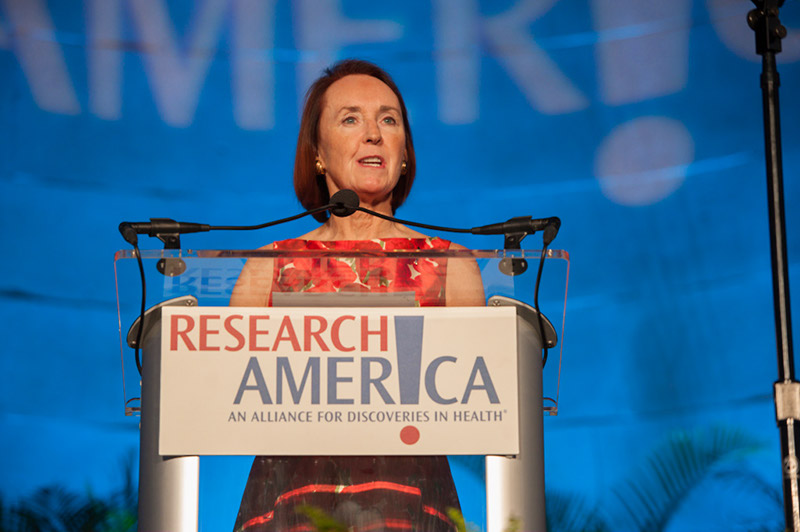Skepticism In and About Science


Dear Research Advocate,
As the COVID-19 virus continues to evolve, taking more lives and impacting us all, the urgency of conveying accurate, persuasive information, as well as effectively combating mis- and dis-information, has reached ‘code red’ levels. Complicating the situation further is that scientific and policy decision-making is playing out in real time, and not always in a way that engenders confidence among the public. (The most recent case in point is conflicting views on booster shots.)
The science and public health community is learning a new communications skill set, albeit more trial-and-error based than we’d all like. Improving our public engagement and communication skills will serve us all well going forward. Here’s a resource for your consideration in this regard, a recent piece discussing the efficacy of “technique rebuttal,” which relies on asking questions first before providing information. By asking what evidence would change a person’s mind, people are more likely to be willing to listen to a response. If this sounds familiar, it is — scientists are trained to be skeptical, changing their views only as evidence evolves. As Nobel Laureate in chemistry Walter Gilbert said, “the virtues of science are skepticism and independence of thought.”
Many members of the public are largely unfamiliar with the scientific process: two steps forward, one step back; knowing what we know today conditionally until proven otherwise. The pandemic has spotlighted the dynamic nature of the scientific process and it’s only natural that people are asking a lot of questions. (Of course, some self-described skeptics are, in fact, deniers with dangerous agendas…read on.)
Women’s Health: Misinformation online regarding the safety of the COVID-19 vaccine for pregnant women is rampant, creating a major deterrent for those who may already be hesitant. Only 23% of pregnant women in the U.S. have received at least one dose of the vaccine. Last week, the CDC released new data showing the vaccine is safe for pregnant women. Noted infectious disease researcher and past Research!America Advocacy Award honoree Dr. Peter Hotez applauded the CDC recommendation and addressed the issue of misinformation.
Also relevant, the NIH Office of Research on Women’s Health is hosting an “Advancing NIH Research on the Health of Women” conference on October 20 focused on research efforts around maternal morbidity and mortality, chronic diseases, and cancers impacting women. NIH is seeking comments through September 15 to identify gaps in research and clinical practice on these topics (send comments to Elizabeth Barr).
On the Hill: Congress is in August recess, but this year the urgency to keep legislation moving means the House plans to return Monday to set the terms of debate for the budget resolution, infrastructure package, and voting rights legislation. Reports are that votes on final passage of the budget framework and the voting rights bill could occur as early as Tuesday.
To influence which health policy issues will receive the attention of Congress this fall, we can act now. Research!America sent a letter this week to House Energy and Commerce Health Subcommittee leadership asking them to consider holding a hearing on the “valley of death” in biomedical R&D.
We’ve also signed on to a letter urging the Health Subcommittee to convene a hearing on the worsening crisis of antimicrobial resistance (AMR). The letter is open for organizational signatories through August 27 (contact [email protected]); the effort is led by the Infectious Diseases Society of America, Cystic Fibrosis Foundation, BIO, the Partnership to Fight Infectious Diseases, and the Pew Charitable Trusts.
What other research issues do you think Congress should consider in 2021 and 2022? Let us know: email Anna Platt.
Forum Agenda is Robust: A roundtable to discuss what we can do right now to slow down antimicrobial resistance through better stewardship (such as infection prevention, surveillance, and diagnostics to improve prescribing) will be one of many insightful and actionable conversations featured at our upcoming 2021 National Health Research Forum (September 13-15).
We’re announcing new Forum speakers and sessions every few days! From your own screen, anywhere you are, free of charge, you can engage with and learn from top leaders across the medical and public health research ecosystem, spanning government, academia, patient advocacy, industry, and media. Register now to join us!
Upcoming Alliance Meeting: Alliance meetings will resume in two weeks. Join us Thursday, September 2, at 1 p.m. ET. Register now to hear from Carrie D. Wolinetz, PhD, Deputy Director for Health & Life Sciences, Office of Science & Technology Policy, on OSTP’s work in the life science arena.
Stay well, stay safe, and stay connected.
Sincerely,
Mary Woolley




